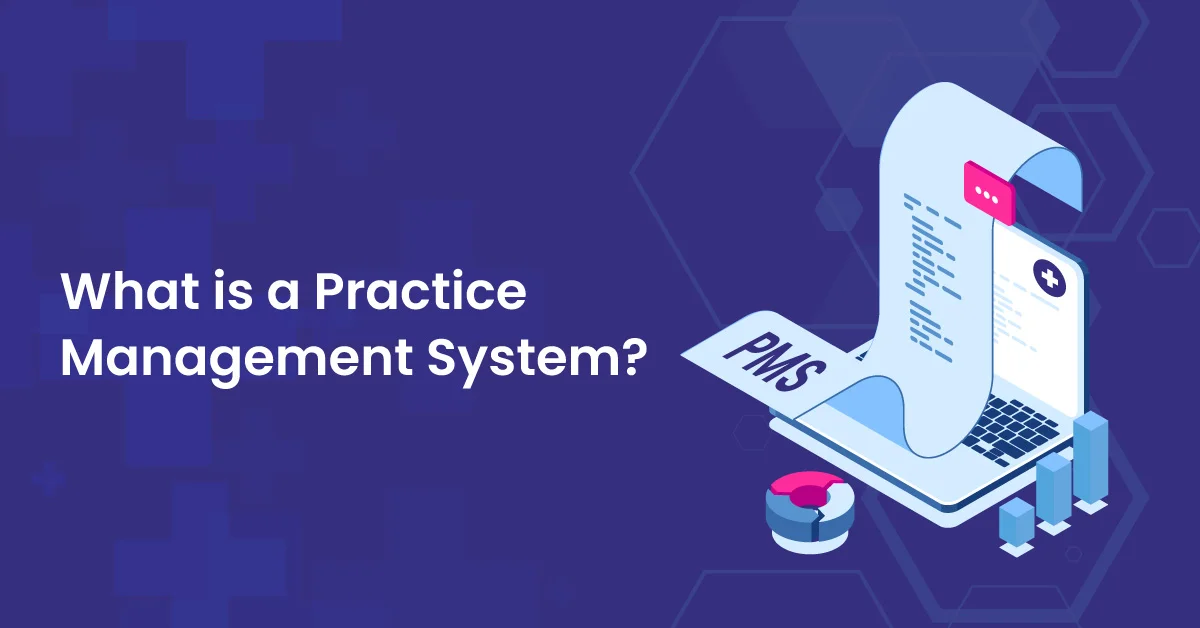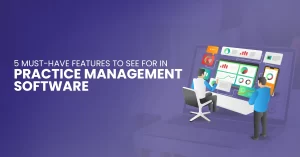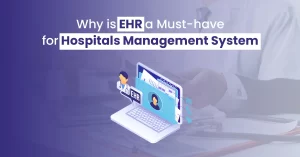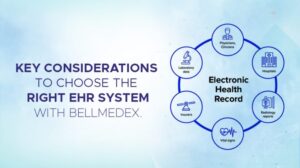The American Medical Association describes improving practice effectiveness, professional satisfaction, and patient care delivery as the purposes of healthcare practice management. In order to manage registration, scheduling, patient monitoring, patient accounting, and reporting through a standardized workflow across all operations, businesses need practice management systems.
This allows all patient accounts to pay for using a single platform. Suppose you expect to increase healthcare productivity and improve patient and billing processes. You need to know what is a practice management system and how the management of medical practices helps to enhance productivity.
Practice Management Software
If you work in the healthcare sector, you probably agree that many software, applications, and other tools have upgraded. The majority of healthcare facilities, practitioners, and institutions use cutting-edge technology to deliver the best possible patient care.
Another kind of healthcare software is medical practice management software (PMS), which coordinates, manages, and integrates effective medical procedures. It has a workflow that unifies all medical practice’s health operations. Everything, from verifying health insurance to submitting claims, making payments, and managing collections, combine in a practice management system. The staff effortlessly add new patients and make appointments; it maintains the entire patient data. Practice management solution (PMS) falls under several categories: desktop-only, web-based, and client-server software.
Practice Management System Elements
PMS is used for financial and administrative purposes. Some doctors work with various vendors for PMS and EHR systems. Implementing these two thoughts is the most challenging part of software implementation, though. It’s not enough to know about what is a practice management system? It needs elaboration on how it works and streamlines healthcare operations?
The practice management software users can monitor insurance claims and keep track of patient appointments as part of the collection process. Large data sets can be maintained, including a list of procedures, diagnoses, and insurance providers. Examine and scrutinize the main components of the practice management system.
Patient Personal Information
Collecting patient personal information is one of the main duties of medical practice management system. This includes Patient names, phone numbers, addresses, insurance, employment, or any other information. Practice management systems assist administrators in determining immediately whether patients have adequate insurance coverage or not.
Making an Appointment
At medical offices, scheduling patient appointments is a time-consuming operation that has made much easier with practice management system as it automates the procedure. This increases the practice’s productivity. It is feasible to retrieve appointment information quickly, enabling doctors to see more patients.
Insurance Claims
The process for filing a medical insurance claim is both typical and intricate. Administrators can efficiently submit claims via medical practice management software, freeing up their time for other tasks. Several clean claims rate increases while the number of denials is falling.
Making Reports
Practice management system reporting features give customers access to thorough and reliable information regarding the quality of care, finances, and other relevant data. The Medical Practice Management Software comes in different variations with customizable reporting tools.
Error-free Billing
The medical practice’s financial stability depends on accurate and effective billing and collection procedures. The Medical Practice Management Software’s billing feature enables the practice personnel to create accurate invoices for the services rendered and also automated billing processes with accurate allocation of billing codes.
Practice Management software can easily manage billing and coding services while integrating with EHR. With the help of an integrated workflow practice management system, it simplifies many tasks. It verifies quality control and adhere to regulations, including HIPAA, ICD codes, and others.
Practice Management Systems Advantages
A flexible option for managing tasks, enhancing workflow, and others are offered by Practice Management System. The entire process is automated, which helps you save a lot of time and work.
Here are some more advantages of using a practice management system (PMS).
Concentration on patient care
The practice management system enables providers to focus on quality rather than administrative duties by coordinating and conducting medical practices. Scheduling and tracking are mechanized, so the patients and difficulties associated with billing insurance are managed. Staff can devote more time to the patient when they are not under time constraints from their jobs.
Boosts Productivity, Profitability, and Efficiency
Standard functionalities are automated by the practice management system. For instance, it keeps track of inventories and sends reminders for appointments. When inventory is low, it orders more. The history and record of the patient are not a concern for hospitals or medical personnel. As a result, it raises productivity.
Reduces Errors
In contrast to handwritten notes, practice management system reduces errors. Tablets and smartphones for documentation has given priority to paperless record keeping. You can also manage documents using practice management system.
Affordable
Practice management system streamlines the process online and eliminates the need to gather paper documentation. As a result, it reduces the time needed to read through the documents and make sure that attention is paid to the crucial duties.
Hassle-free Scheduling
Practice management system makes appointments using an electronic calendar and automatically notifies users for their appointments. A scheduling system increase productivity by giving workers access to real-time updates. The more efficiently you organize your tasks, the more room you’ll have to provide excellent customer services. You can use it to set up appointments and learn more about client trends.
Easy updating
Everything becomes simpler with an integrated system that update staff about patient and insurance information. Furthermore, it prevents patient mistakes, and serves healthcare practices of different sizes.
The top practice management systems will also contain thorough reporting and analytics to assist you in managing your practice more effectively. Additionally, they ought to work well with any other essential software you might employ
Practice management system with BellMedEx
For more than 6 years, Bellmedex has helped physicians and practice management become more productive. As a result of the increased productivity, medical practices are now more profitable, and their patients are receiving better care and communication.
Bellmedex knows the tools and procedures required to configure software-based solutions for successful medical billing. we run, for medical practices that want assistance with EHR and medical pre-based solutions. Bellmedex is exceptionally qualified to assist practice administrators and physicians in learning more with our practice management system.
With Bellmedex, scheduling, billing, and filing insurance claims have become simplified. The PM software of BellMedex can be used independently or in conjunction with the EHR platform to lower expenses and increase productivity.




